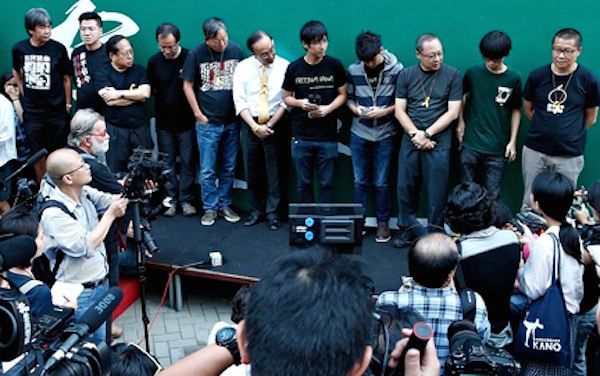Hong Kong May Start Clearing City-Center Demonstrators
Hong Kong’s government may today clear some of the city-center obstructions erected by pro-democracy protesters, as public support for the student-led movement ebbs after almost two months of demonstrations.
Police will help court bailiffs to enforce a civil injunction against protesters blocking entrance into the Citic Tower in the Admiralty district, according to apress release posted on the government’s website yesterday. The court order doesn’t cover the main tent city the protesters have set up.
Attempts to impede the bailiffs may render protesters liable to charges of criminal contempt of court and police will take “resolute action” against violence, the government said. The statement makes no mention of plans to clear barricades in theMong Kok district across the harbor, which are the target of separate injunctions.















